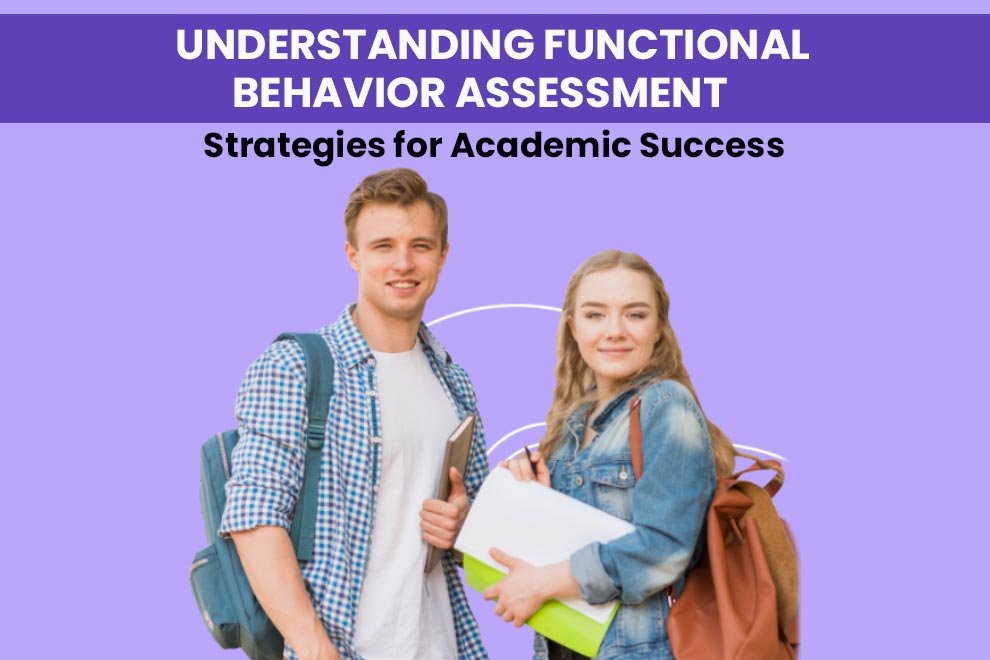In the realm of education, the Functional Behavior Assessment (FBA) emerges as a crucial framework for understanding and addressing behavioral challenges among students. This comprehensive approach delves into the factors influencing behavior, aiding educators in creating effective interventions and support systems. As we navigate the complexities of implementing Functional Behavior Assessment, it becomes evident that academic success is not solely dependent on traditional teaching methods but also on recognizing and addressing the diverse behavioral needs of students. Amid this exploration, individuals seeking academic support may find themselves contemplating to “best online class help” to alleviate challenges associated with behavioral assessments and coursework. This article aims to unravel the significance of Functional Behavior Assessment, exploring strategies for academic success while acknowledging the potential role of external assistance in navigating these educational challenges.
Understanding Functional Behavior Assessment (FBA)
Functional Behavior Assessment is a systematic process that involves identifying the variables influencing challenging behaviors in students. By examining the antecedents, behaviors, and consequences of actions, educators gain valuable insights into the function or purpose these behaviors serve for the student. The primary goal is to develop targeted interventions that address the root causes of challenging behaviors, fostering a positive and conducive learning environment. The adaptability of the FBA framework allows educators to tailor interventions based on individual student needs, recognizing that behavior is a form of communication that extends beyond the academic context.
Importance of Implementing Functional Behavioral Assessment
The implementation of Functional Behavioral Assessment (FBA) holds paramount importance in the educational landscape, as it serves as a foundational tool for understanding and addressing challenging behaviors among students. By systematically examining the antecedents, behaviors, and consequences of actions, FBA provides educators with crucial insights into the underlying factors influencing student behavior. This comprehensive understanding enables the development of targeted interventions and individualized behavior plans, fostering a positive and inclusive learning environment. The significance of FBA lies in its ability to go beyond mere behavior management, aiming to identify the root causes of challenging behaviors and equip educators with effective strategies to address them. It empowers educators to create tailored interventions, teach replacement behaviors, and collaborate with stakeholders, ensuring that students receive the support they need to succeed academically and socially. Ultimately, the implementation of FBA reflects a commitment to recognizing and addressing the diverse behavioral needs of students, promoting a holistic and proactive approach to behavior support in educational settings.
Strategies for Implementing Functional Behavior Assessment
Implementing Functional Behavior Assessment (FBA) in educational settings is a dynamic and crucial endeavor aimed at understanding and effectively addressing challenging behaviors among students. FBA is a systematic process that involves thorough data collection, collaborative efforts with stakeholders, and the development of individualized behavior intervention plans. The strategies for implementing FBA go beyond traditional behavior management, focusing on identifying the root causes of behaviors and creating targeted interventions that support positive outcomes. As educators delve into the multifaceted aspects of FBA, this introduction serves as a gateway to exploring the diverse and proactive strategies that contribute to creating inclusive and supportive learning environments. From data-driven decision-making to the teaching of replacement behaviors, each strategy plays a pivotal role in fostering a holistic approach to behavior support in educational contexts.
Data Collection and Analysis:
FBA begins with systematic data collection to identify patterns and triggers associated with challenging behaviors. This objective approach helps educators make informed decisions about interventions and support strategies.
Collaboration with Stakeholders:
Engaging parents, caregivers, and other stakeholders is vital in gaining a comprehensive understanding of a student’s behavior. Collaborative efforts ensure a holistic approach to addressing behavioral challenges, both in the classroom and other environments.
Individualized Behavior Plans:
Based on FBA findings, educators develop individualized behavior intervention plans (BIP) tailored to the unique needs of each student. These plans outline specific strategies, accommodations, and support mechanisms to address challenging behaviors effectively.
Teaching Replacement Behaviors:
FBA emphasizes teaching and reinforcing replacement behaviors that serve the same function as challenging behaviors but in a more adaptive and socially acceptable manner. This proactive approach helps students develop alternative ways of expressing their needs.
Continuous Monitoring and Adjustment:
Successful implementation of FBA requires ongoing monitoring and adjustment of behavior plans. Regular assessments ensure that interventions remain effective, and modifications can be made as needed to address evolving student needs.
Navigating Academic Challenges: Exploring External Assistance
Navigating academic challenges often requires a multifaceted approach, and exploring external assistance becomes a viable strategy for students facing complex demands. Whether managing coursework, assignments, or specific challenges associated with academic assessments, seeking support can alleviate the pressure and contribute to a more successful educational journey. External assistance services, such as Scholarly Help, play a crucial role in providing targeted support. These services offer valuable assistance to students, aiding in completing assignments, managing time effectively, and mitigating academic stress. The exploration of external assistance acknowledges the diverse needs of students and recognizes that additional support can contribute to their overall success. While self-reliance is essential, the availability of scholarly help services serves as a valuable resource for individuals seeking a balanced and well-supported academic experience.
Final Thought
In conclusion, the journey through academic challenges involves a thoughtful blend of internal resilience and external support. Exploring external assistance, such as Scholarly Help services, becomes a pragmatic strategy for students aiming not only to navigate the complexities of coursework and assessments but also to excel in their academic pursuits. The recognition of diverse learning needs and the proactive utilization of available resources contribute to a holistic approach to education. While self-determination remains fundamental, the acknowledgment that seeking external assistance can enhance academic success underscores the importance of adapting to a dynamic and supportive learning environment. In this synergy of personal resilience and external support, students are better equipped to overcome hurdles, thrive academically, and cultivate the skills necessary for lifelong learning and success.
ALSO READ: Business Schools: Teaching Self-Assessment to Endeavour Business World










